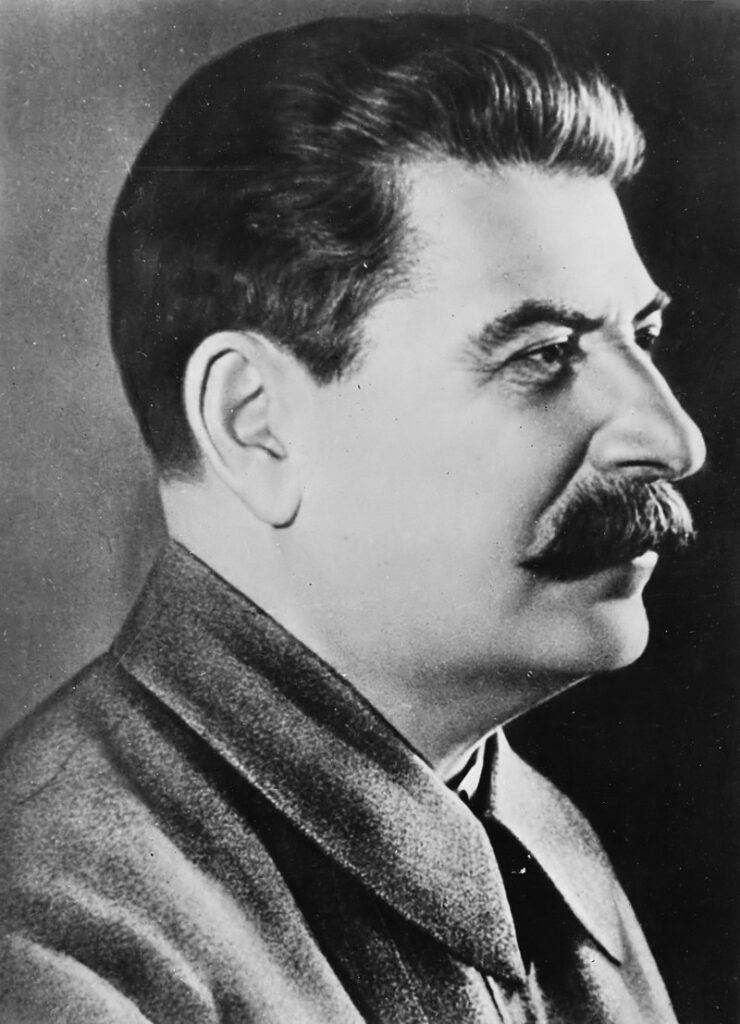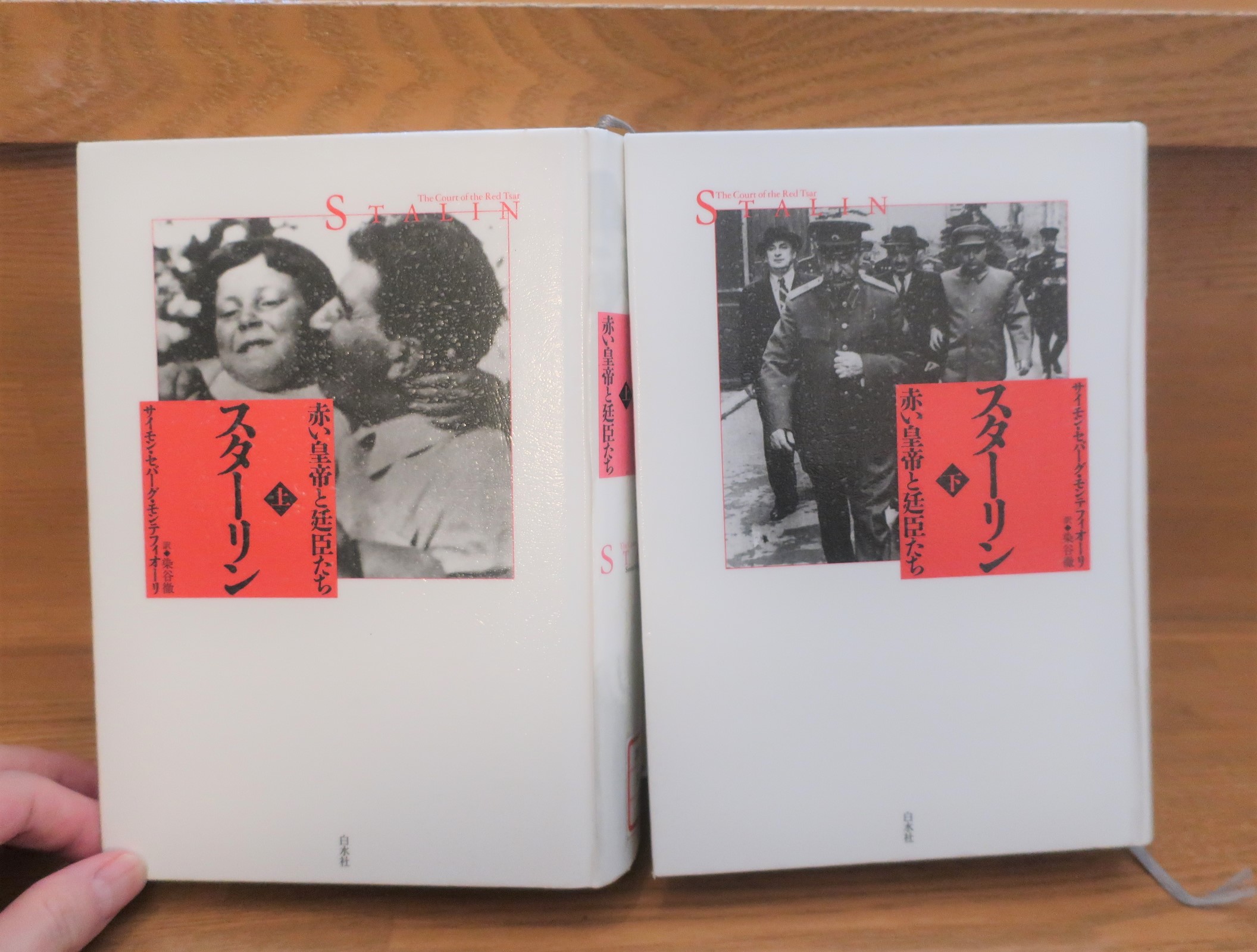Table of Contents
Who was Stalin - The Significance of Studying Stalin - Reading "Stalin, the Red Czar and His Courtiers" (1)

Joseph Stalin (1878-1953)Wikipedia.
Sa from this article.Imon Seberg MontefioriworkStalin, the Red Czar and His Courtiers.The following are some of the memorable passages from the
All of the passages are very interesting to learn about who Stalin was and what took place during the Soviet era.
So let's get started.
Author's Stance. Why portray Stalin and his courtiers?
If anything is to be said about these people, it must inevitably be a tale of retribution. Of the many mass murderers, however, only two, Beriah and Ejov, have been charged with a crime (whatever the crime).
Until now, the prevailing view has been to attribute all the blame to Stalin alone. Western society has a stereotype of Stalin as a diabolical group of criminals, and there have been horrifying and pointless debates about who was the "world's worst dictator" in comparison with Hitler, based on the number of victims.
Such an idea, however, cannot be called historiography, even though it may be demonology. The idea of framing one person as a madman and charging him with the crime does not only teach us nothing about the grave dangers of utopian ideology and its system, but also makes us question the responsibility of human beings as individuals.
Today Russia has not yet fully confronted its past. It is hard to believe that the past has been cleared up. And it certainly casts a dark shadow over the development of civil society in Russia.
Many contemporary Russians may not welcome my work, which attempts to portray nakedly the history they wish to forget and avoid, including its reverse side.
This book does not diminish Stalin's deadly sins in the slightest, but it does dig up a convenient fiction that attempts to place all the blame on Stalin alone.
Everyone in the leadership was responsible for the mass murder, and also everyone in the leadership had their own suffering and sacrifices, and each had their own privileges and criminal acts.
Hakusuisha, Simon Seberg Montefiori, translated by Toru Someya, Stalin: The Red Czar and His Courtiers, pp. 12-13
Some line breaks have been made.
Author.Simon Seberg MontefioriFor these reasons, the "Mere Old Man" decided to focus this story on Stalin, his family, and his interactions with his courtiers.
Who is Stalin?
This is one of the most important sections of the book.
The practice of abandoning one's private self in order to make a name for oneself as a hero on the world's top stage is a habit shared by many of the world's rulers since Caesar.
In Stalin's case, however, the habit was somewhat overdone. When it was discovered that his son Vasily had used his father's name, Stalin was furious, and his adopted son Artyom remembers his words. Vasily quipped, "But I am a member of the Stalin family too, aren't I?
Stalin shouted at him. No, no. You are not Stalin. I am not Stalin. Stalin is the Soviet power itself. The Stalin in the newspapers, the Stalin in the portraits, that is Stalin. Individuals like you and me are not Stalin.
Stalin was actually a fictional character created by Stalin himself.
This person, whose name, birthday, race, educational background, and entire past history were all newly created for the purpose of changing history and playing the role of a leader of change, met the movement to overthrow the world order through sheer force of will, good fortune, and skill, and also found himself in a unique opportunity, Otherwise, he would have spent the rest of his life in a mental institution.
Stalin was such a man. The movement he met was the Bolshevik Party, and the opportunity he encountered was the end of the Russian Empire.
After his death, it has long been common to portray Stalin as a deviation from history, which is nothing more than a falsification of history as violent as Stalin's own deeds.
Stalin's success was no accident. No one else in Lenin's party had or would have fitted the characteristics of conspiracy politics, stone-letter rigidity of theory, murder-affirming doctrine, and inhumanly strict discipline more exactly than Stalin.
There is no more ideal case of one man uniting with a movement than the union of Stalin and Bolshevism. Stalin was a mirror of all the virtues and faults of the Bolshevik movement.
Hakusuisha, Simon Seberg Montefiori, translated by Toru Someya, Stalin: The Red Czar and His Courtiers, pp. 30-31
Some line breaks have been made.
Stalin himself stated, "Even I am not Stalin.
I think this is a very important word.
Stalin has been considered the dictator of the Soviet Union. However, Stalin himself may have been only one cog in the Soviet system. It was very interesting to see how Stalin, who seemed to be running everything, was actually being driven by the system.
I think this passage is very important in considering what a dictator is.
Lenin's Marxist Thought
Lenin, an arrogant political genius, linked the basic concepts of Marxist thought to Machiavellian-style practical action, or power grabbing, and took advantage of the fractured state of the revolutionary movement to found and lead the Bolshevik Party.
Lenin's argument was that an omnipotent party composed of professional revolutionaries would seize power for the working class and carry out the dictatorship of the proletariat in the name of the workers until the time when socialism would eventually be realized and dictatorship would be unnecessary. Lenin's view of the party as "the vanguard unit of the army of the proletariat ...... a fighting group of leaders" would bring a strong military color to Bolshevism.
Hakusuisha, Simon Seberg Montefiori, translated by Toru Someya, Stalin: The Red Czar and His Courtiers, p. 68
Some line breaks have been made.
This may not be simply true if one looks at it in strict detail, but for Lenin, the goal was actual action, i.e., to gain power. The establishment and maintenance of power, rather than the security and prosperity of the country, was the primary objective. One might say that this is why there were repeated large-scale purges in the Soviet Union.
Refuting the theory that "Stalin was actually a spy under the direct control of the Czar."
In February 1913, Stalin was arrested again, but this time his sentence was so short that it aroused certain suspicions.
Perhaps Stalin was a spy for the Tsar's secret police "Ofrana"? However, the scandalous historical view of Stalin as a double agent is only the result of a naive misunderstanding of the underground activities of the time.
To be sure, there were countless Obrana spies in the revolutionary interlocking, many of them triple agents rather than double agents.
Koba (*Stalin's street name when he was young. Blog author's note) may have been willing to sell out hostile factions among his comrades to the police. But as the Ofrana report actually states, he was consistently a fanatical Marxist. The important point was that.
Hakusuisha, Simon Seberg Montefiori, translated by Toru Someya, Stalin: The Red Czar and His Courtiers, p. 72
Some line breaks have been made.
It is quite sensational to say that "Stalin was actually a spy on the Czar's side." This catchy topic is discussed in various books, but according to Montefiori, it is nothing more than a naive misunderstanding, which he denies.
It is easier to spread sensationalism than facts. But it is difficult to tell what is true and what is a lie (or a wish).
I am not an expert, so I cannot verify whether Montefiori's words are really correct as well, but this book is a work backed by a vast amount of data, so I suspect its reliability is higher than other books.
Stalin's deification of Lenin
Lenin was the only one who saw that Stalin was emerging as the most likely candidate to succeed him.
There, Lenin secretly dictates an impeachment will demanding Stalin's dismissal and has it written.
However, on January 21, 1924, Lenin suffered a fatal stroke and never returned home.
Ignoring the wishes of Lenin himself and his family, Stalin staged a de facto deification of the late leader, embalming his remains like those of a Russian Orthodox saint and placing them in a mausoleum in Red Square.
Stalin used the sacred authority of his late hero to consolidate his own power.
Hakusuisha, Simon Seberg Montefiori, translated by Toru Someya, Stalin: The Red Czar and His Courtiers, p. 80
Some line breaks have been made.
Shortly before his death, Lenin saw that Stalin was in the running to succeed him. He was also aware of the danger he posed. Lenin died suddenly, and Stalin took advantage of the chaos to prevent his will from taking effect.
He also went to great lengths to elevate his own authority by deifying Lenin, treating him like a saint, and he continued on the road to dictatorship.
Religions of all ages, both East and West, have been promoting their heroes as saints, deities, and their own successors. This suggests that the Soviet Union did not forbid religion, but in fact took the stance that it was the one and only absolute religion, and that no other religions were acceptable.
For this matter.(16) Lenin's death and Lenin's Mausoleum as a temple that still lives on."Please also see below as we discussed in our article on
be unbroken
Next Article.
Click here to read the previous article.
Click here for a list of "Reading Biographies of Stalin" articles. There are 14 articles in total.
Related Articles





































